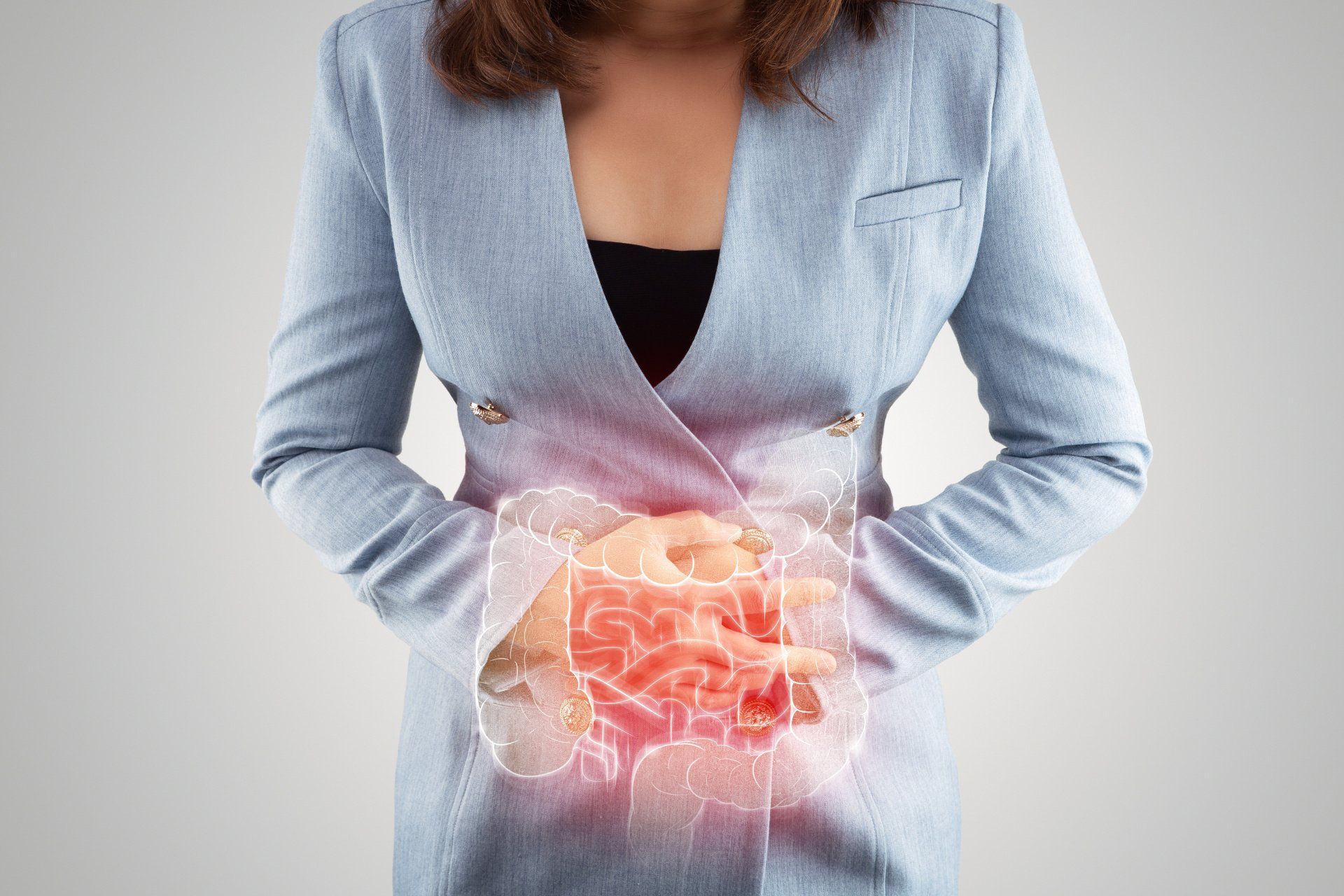What Are the Early Signs of Stomach Cancer?
Stomach cancer, in its early stages, rarely shows any signs or symptoms. Around 7,000 people are diagnosed with this form of cancer each year in the UK, but due to its gradual progress, stomach cancer can be hard to detect in its early stages. Therefore, it is important to get any possible symptoms of stomach cancer checked by your GP as soon as possible. But what are the symptoms associated with stomach cancer?
The signs and symptoms of stomach cancer include:
- Loss of appetite
- Unintended weight loss
- Change in bowel habits such as diarrhoea or constipation
- Abdominal pain
- Indigestion or acid reflux (heartburn)
- Bloating
- Vomiting
- Nausea
- Blood in your stool
- Discomfort in the belly, usually above the navel
- Feeling of fullness after eating a small meal
- Swelling or fluid build-up in the abdomen
- Pallor because of anaemia (low red blood cell count)
As the early symptoms of stomach cancer are similar to those of many other conditions, and this form of cancer is often advanced by the time it’s diagnosed by a professional, it’s incredibly important to get check out if you have the slightest concern.
What are the risk factors for stomach cancer?
The exact cause of stomach cancer is still unclear, but there are several risk factors that have been proven to higher the chances of a stomach cancer diagnosis.
The risk factors for stomach cancer are as follows:
- Gender: Men are at a higher risk of stomach cancer than women.
- Age: Stomach cancer occurs most commonly in people over the age of 50. Most people diagnosed with stomach cancer are in their 60s and 70s.
- Occupation: People who work in coal, metal and rubber industries may have a high risk of stomach cancer.
- Diet: A diet rich in smoked foods, processed meats and pickled vegetables increases the risk of stomach cancer. A diet rich in fresh fruits and vegetables can lower the risk of stomach cancer. In fact, the number of people in the UK who develop stomach cancer is decreasing. This is probably because our diet is improving, and we are eating more fresh food than ever before.
- Smoking: Smoking increases the risk of stomach cancer. The longer a person smokes for and the more they smoke, the greater the risk. The risk reduces when you stop smoking.
- Family history: Most stomach cancers are not caused by inherited cancer genes. And most people who develop stomach cancer do not have a strong family history of it. But sometimes stomach cancer runs in families. This may be because close family members share some risk factors for stomach cancer like a similar diet. Rarely is it caused by an inherited gene, but it’s not impossible. In general, the chance of there being a family link is greater when:
- a number of family members have been diagnosed with stomach cancer
- the family members who have been diagnosed with stomach cancer are closely related
- the family members were diagnosed with stomach cancer at a younger age.
- Being overweight or obese: People who are very overweight have an increased risk of cancer in the area where the stomach joins the oesophagus. This area is called the gastro-oesophageal junction (GOJ).
- Helicobacter pylori infection: This is a stomach infection that causes inflammation of the stomach lining. Over a long time, it can increase the risk of cancer developing.
- Previous stomach surgery: Previous surgeries for reasons such as stomach ulcers can increase the risk of stomach cancer. It might be due to less acid production that causes the nitrite-producing bacteria to multiply in the stomach. Bile reflux into the stomach after surgery can also contribute to different stomach cancers.
- Type A blood group: People with type A blood are at a high risk of stomach cancer.
- Pernicious anaemia: Cells that line the stomach make something called intrinsic factor (IF). This helps us to absorb vitamin B12 and make red blood cells. Pernicious anaemia causes the immune system to attack the cells that make IF. If you are not making enough IF, you do not absorb enough vitamin B12, meaning you have too few red blood cells (anaemia). Due to this, people with Pernicious anaemia are at higher risk of stomach cancer.
- Lynch syndrome: This is a genetic disorder that increases the risk of certain cancers including stomach cancer.
How we can help
The Chartwell Hospital is committed to increasing awareness of cancer symptoms as early diagnosis really can save lives. We urge all patients to see a GP or Healthcare Professional if they feel that something is wrong, or any health-related symptom has them worried.
Our Gastroenterology doctors can provide compassionate, personalised care and will work with you to review your options and choose the treatment that best suits your needs and preferences.
To book a FREE video consultation please use our online form to arrange a suitable date and time.









